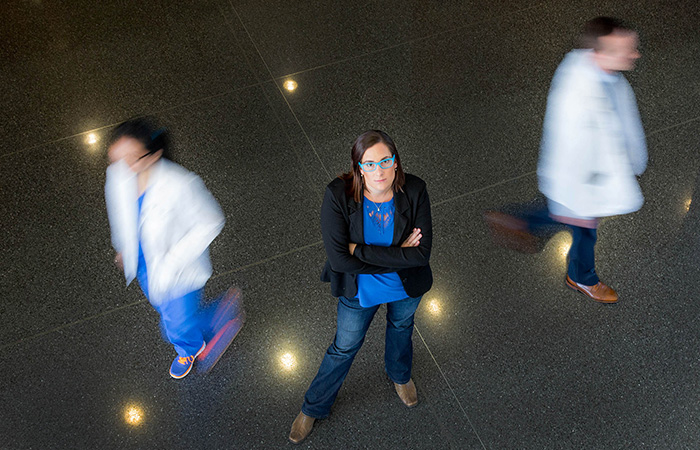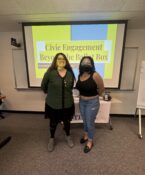Student’s invention targets international sex trafficking
By Sally Crocker

A UNTHSC public health student wants to stop international sex trafficking with a simple piece of jewelry.
The “Safe Move” bracelet, designed by MPH graduate student Kwynn Gonzalez-Pons, has the potential to save countless lives around the world by helping law enforcement agencies locate missing children and adults.
Equipped with a global tracking device, this new invention can be worn just as is – or if risks of detection are too high, its locator chip can be removed to hide in a shoe or pocket.
The plan is to make the bracelets available through discreet Safe Move stations in hot-spot trafficking areas like airport restrooms, bus stations and hotel lobbies, where victims may be lured or transported.
The number of missing individuals worldwide continues to grow each year, and stopping this problem is a top priority for law enforcement and other agencies.
According to the FBI, the number of domestic and international victims, mostly females and children, is in the millions. Sex slavery and trafficking, the FBI reports, is happening not just in foreign countries, but also “locally in cities and towns, both large and small, throughout the United States, right in citizens’ backyards.”
For Gonzalez-Pons, the inspiration to address this problem came from a challenge issued to School of Public Health students during National Public Health Week. Students with ideas for improving the world were invited to enter a Health Innovations Contest.
Not only did she win the contest, but Gonzalez-Pons received such encouragement from peers and faculty that she decided to keep working on the idea.
A summer internship with the National Center for Missing and Exploited Children gave her additional perspective, and now she is hoping to take this idea to Yale University for the 2016 Global Health & Innovation Conference.
She’s already made it into the final round of selections for the event’s Social Impact Pitch. The next step is to submit a YouTube video explaining her idea for the judges.
Winners will present their global impact solutions to a select audience at Yale, where they will gain feedback and mentoring from conference speakers and other experts.
![Uyen Sa Nguyen Scaled[58]](https://www.unthsc.edu/newsroom/wp-content/uploads/sites/16/Uyen-Sa-Nguyen-scaled58-145x175.jpg)




Social media